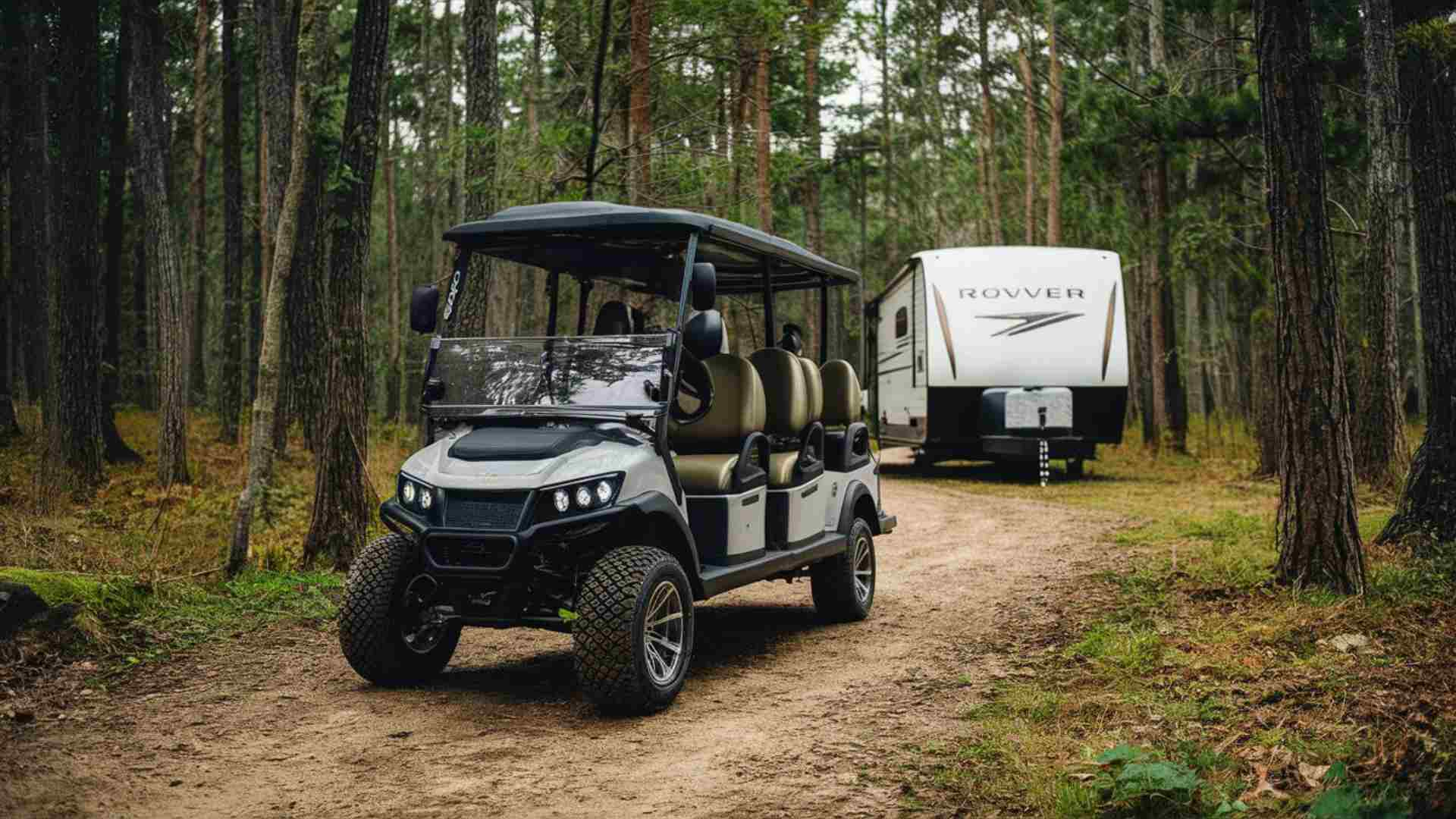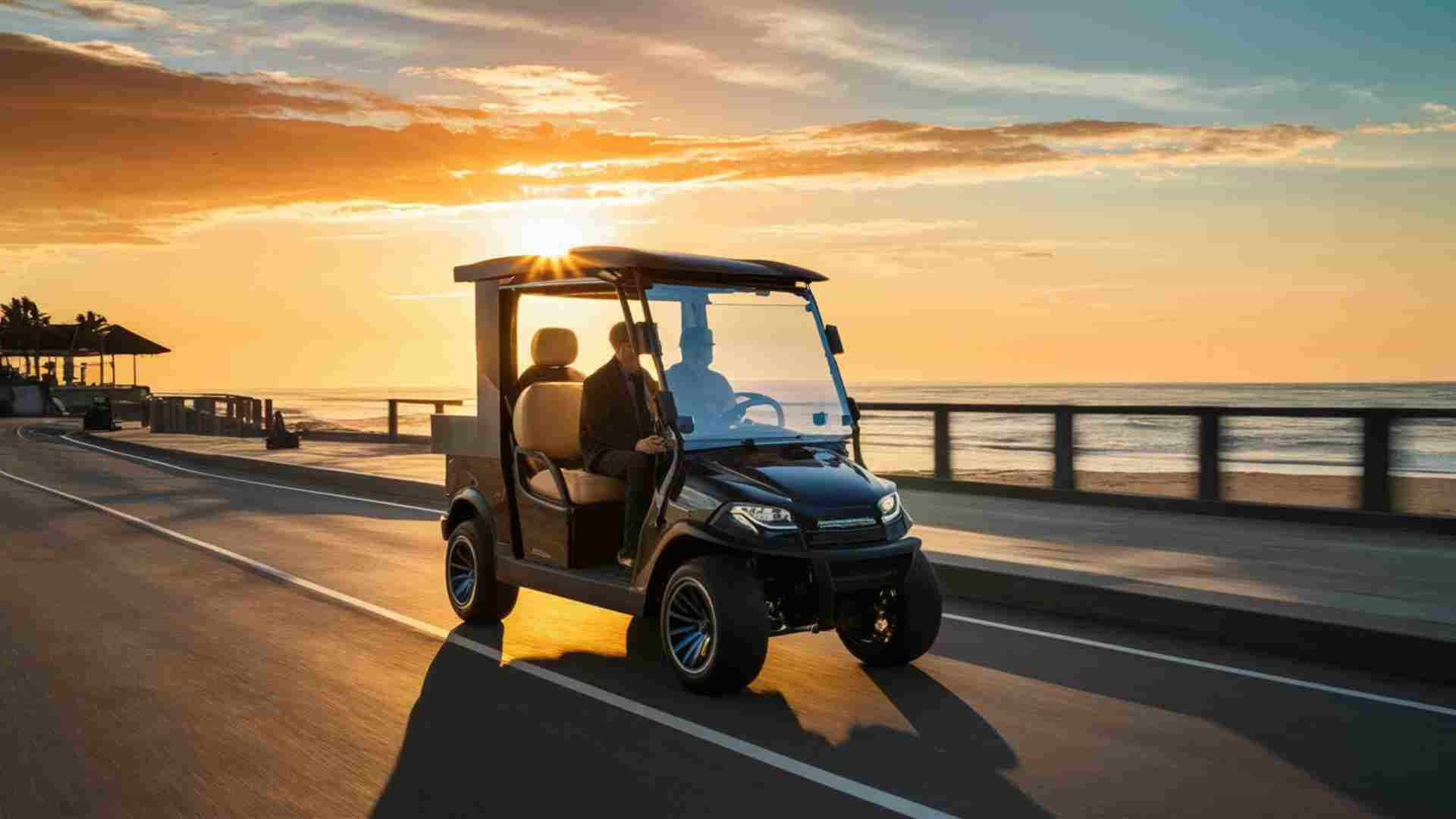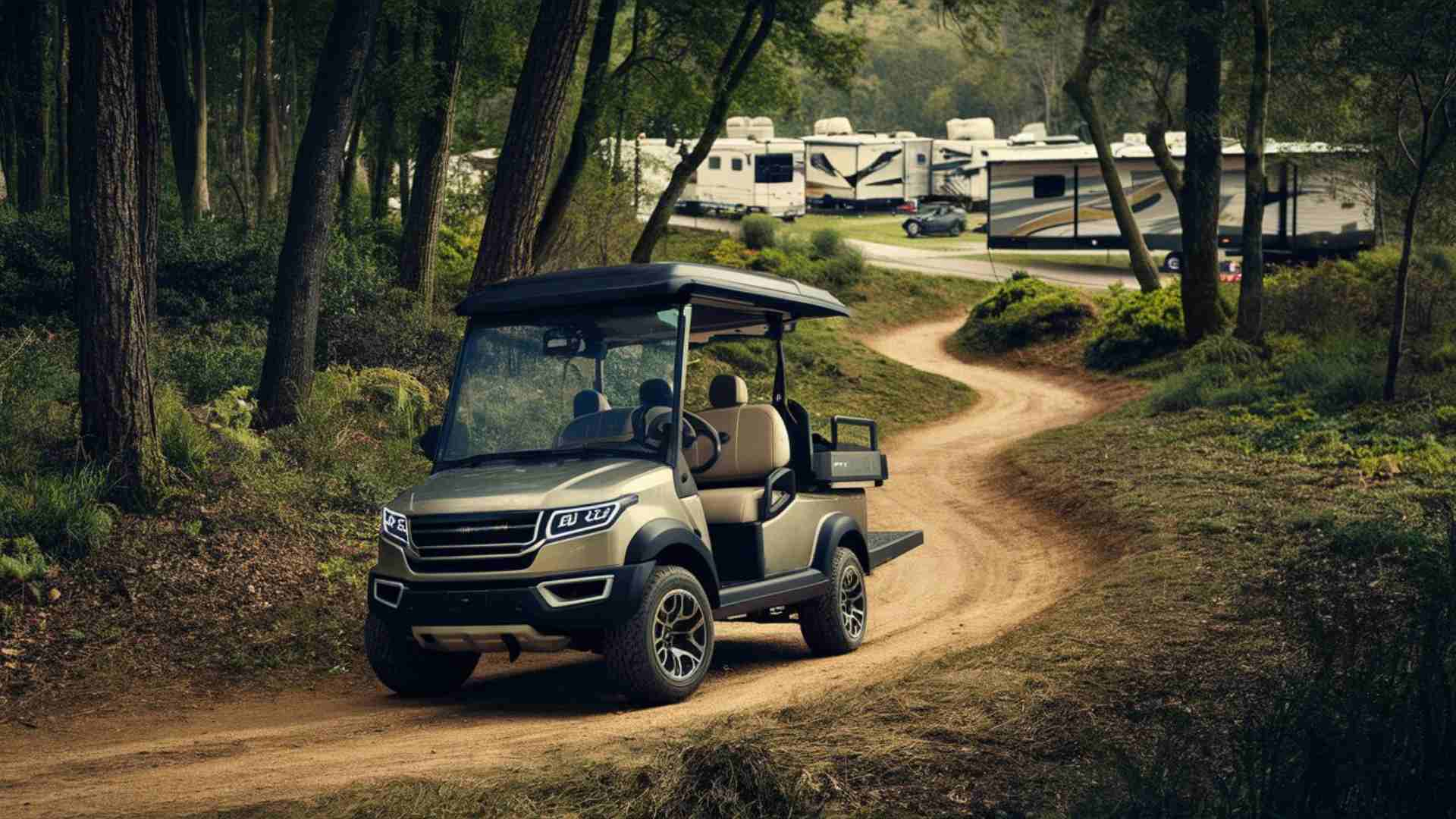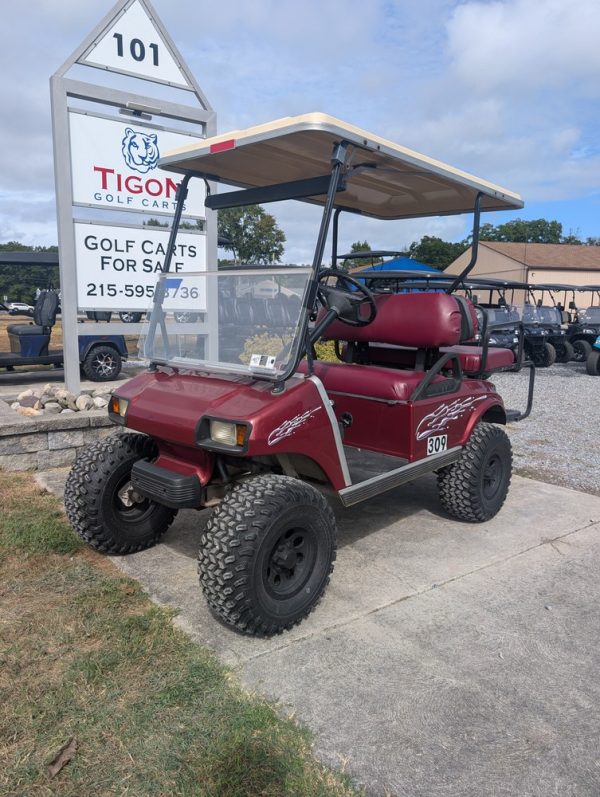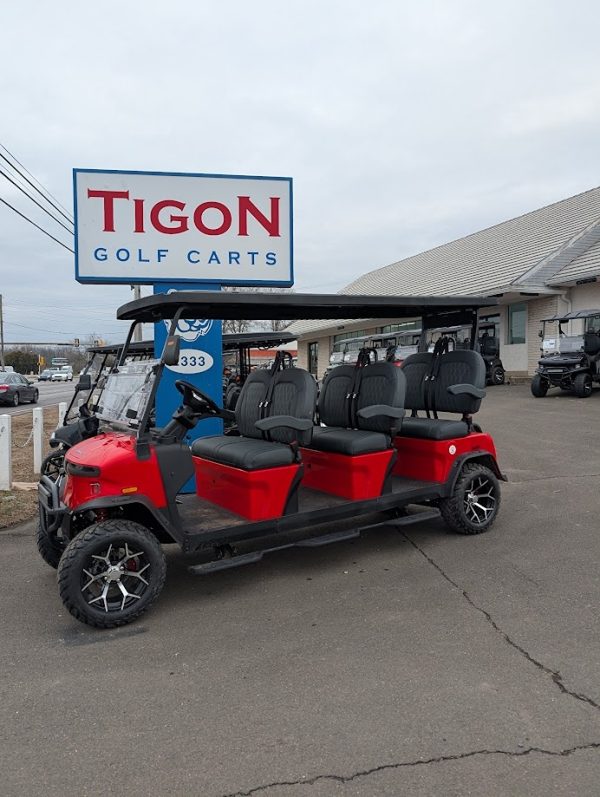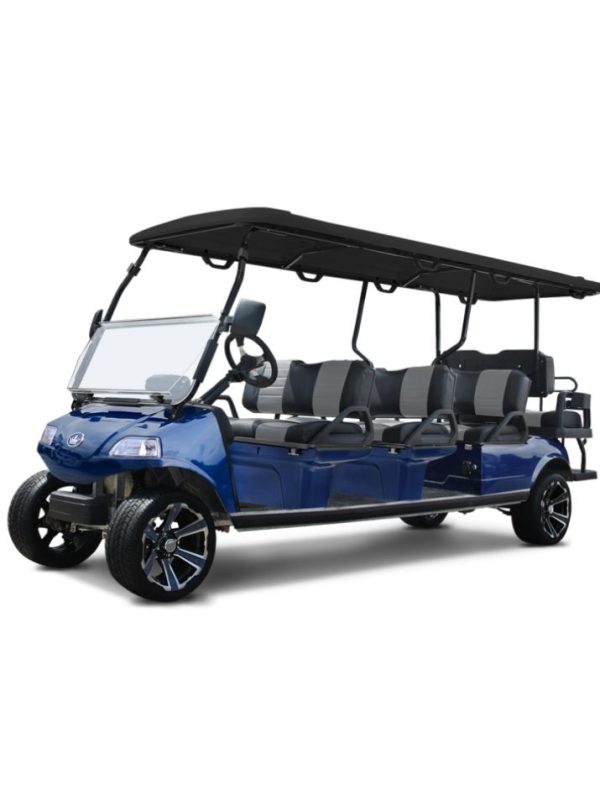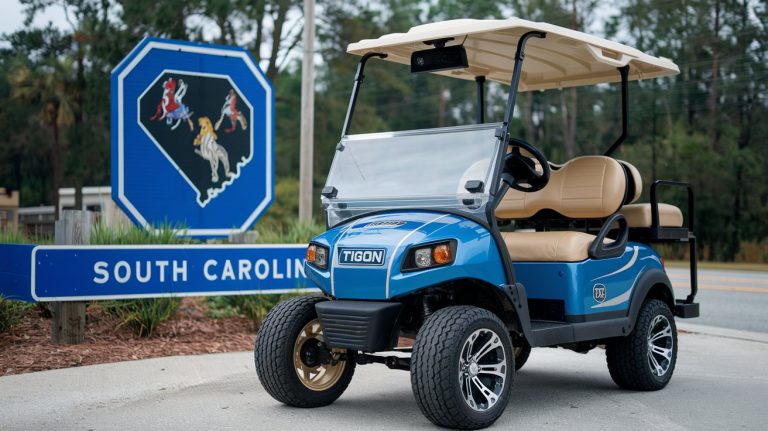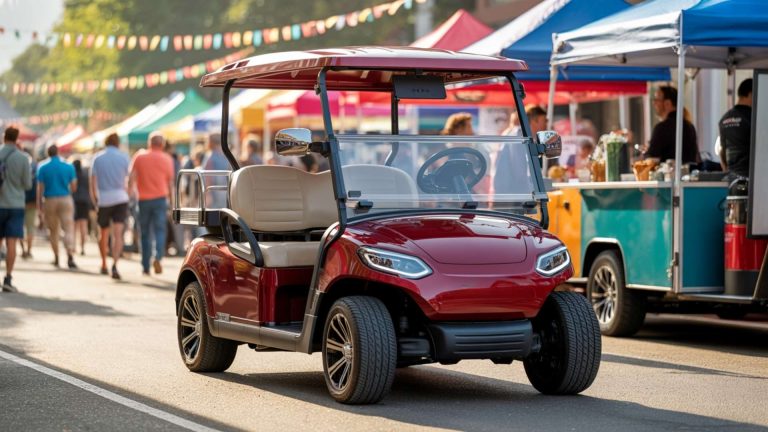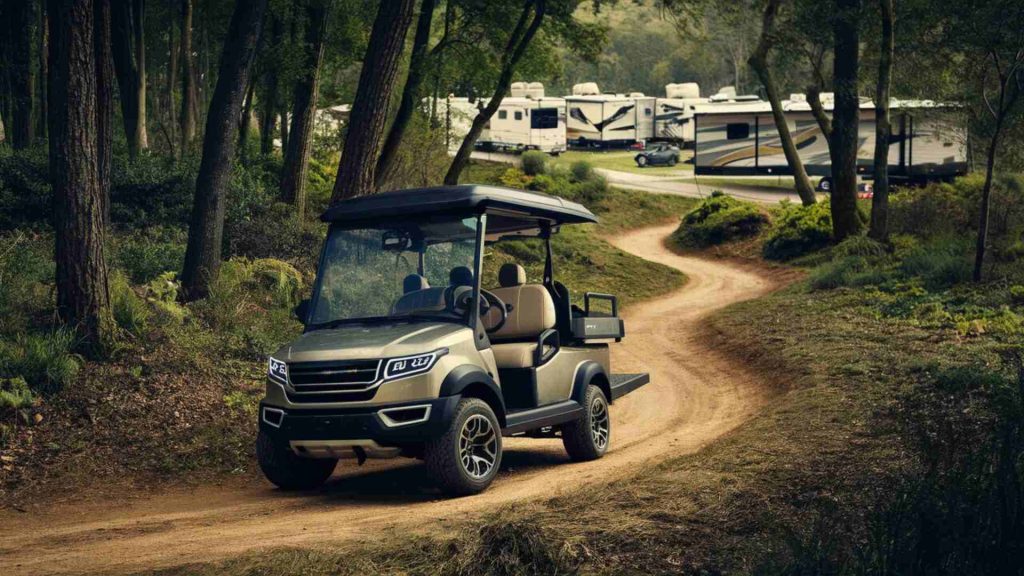
Neighborhood Electric Vehicles (NEV)
What Are Neighborhood Electric Vehicles (NEVs)?
Neighborhood Electric Vehicles (NEVs) are battery-electric vehicles designed for short-distance travel in residential areas and community settings. Resembling golf carts, NEVs typically have a maximum speed of 25 mph (40 km/h) and a maximum loaded weight of 3,000 lbs (1,361 kg). They are legal for use on most public roads with posted speed limits of 35 mph (56 km/h) or less. NEVs are popular for their eco-friendly nature, low operating costs, and convenience for local travel.
What Are the Types of NEVs?
1. Low-Speed Vehicles (LSVs)
Low-Speed Vehicles (LSVs) are a federally approved street-legal classification under the United States Department of Transportation. LSVs, including NEVs, must meet specific safety standards, such as having seat belts, running lights, headlights, brake lights, reflectors, rearview mirrors, and turn signals. They are designed for use on roads with speed limits of 35 mph (56 km/h) or less.
2. Medium-Speed Vehicles (MSVs)
Medium-Speed Vehicles (MSVs) are similar to LSVs but can operate at slightly higher speeds, typically up to 35 mph (56 km/h). While not as common as LSVs, MSVs offer a bit more flexibility in terms of road use, especially in areas with higher speed limits. However, MSVs must meet additional safety requirements due to their increased speed capabilities.
3. Golf Carts
Golf carts are the most familiar type of NEV, commonly used on golf courses. However, many modern golf carts are equipped with features that allow them to be used on public roads where permitted. These vehicles typically have lower speeds and fewer safety features compared to LSVs and MSVs but can be modified to meet local regulations for road use.
What Are the Benefits of Using NEVs?
1. Environmentally Friendly
NEVs produce zero tailpipe emissions, making them an eco-friendly choice for local transportation. By reducing reliance on gasoline-powered vehicles, NEVs help decrease air pollution and greenhouse gas emissions. In states like California, NEVs are classified as zero-emission vehicles (ZEVs) and may be eligible for purchase rebates and other incentives.
2. Cost-Effective
Operating an NEV is significantly cheaper than a traditional gas-powered vehicle. The cost of electricity for charging is lower than gasoline, and NEVs have fewer moving parts, leading to lower maintenance and repair costs. Additionally, some states offer financial incentives for purchasing electric vehicles, further reducing the overall cost.
3. Easy to Maintain
NEVs are relatively simple to maintain compared to conventional vehicles. With fewer mechanical components and no need for oil changes or complex engine repairs, maintenance is straightforward and less expensive. Regular tasks include checking the battery charge, inspecting tires, and ensuring all lights and signals function correctly.
What Are the Limitations of NEVs?
1. Limited Speed and Range
NEVs have a maximum speed of 25 mph (40 km/h) and a typical range of 30 miles (48 km) per charge. This limits their use to short trips and local travel, making them unsuitable for long-distance commuting or highway driving.
2. Not Suitable for Highways
Due to their limited speed and lightweight design, NEVs are not safe for highway use. They are restricted to roads with speed limits of 35 mph (56 km/h) or less, which can limit their practicality in areas without appropriate infrastructure.
3. Limited Passenger and Cargo Capacity
Most NEVs are designed to carry a few passengers and light cargo. They are not suitable for transporting large loads or accommodating more than a small number of occupants, which can be a limitation for some users.
What Are the Laws and Regulations Surrounding NEVs?
1. Federal Regulations
Federal regulations for NEVs, including LSVs, are outlined in Title 49 Part 571.500 of the U.S. Code of Federal Regulations. These regulations mandate specific safety features, such as seat belts, lights, and reflectors, and limit the top speed to 25 mph (40 km/h). NEVs must also meet certain weight restrictions and be registered, titled, and insured according to local laws.
2. State Regulations
State regulations for NEVs can vary widely. While most states align with federal standards, some states impose additional requirements, such as windshield wipers, speedometers, and other safety equipment. It’s essential to check the specific regulations in your state to ensure compliance.
3. Local Regulations
Local regulations may further restrict or accommodate the use of NEVs. Some cities have developed NEV-friendly infrastructure, such as dedicated lanes and paths, to encourage their use and reduce vehicle emissions. Always check local ordinances to understand where and how NEVs can be operated.
How Do NEVs Compare to Traditional Vehicles?
1. Cost Comparison
NEVs are generally more cost-effective to operate than traditional vehicles. The lower cost of electricity compared to gasoline, combined with reduced maintenance expenses, makes NEVs an economical choice for local transportation.
2. Environmental Impact Comparison
NEVs have a significantly lower environmental impact than gasoline-powered vehicles. They produce zero tailpipe emissions and reduce reliance on fossil fuels, contributing to cleaner air and reduced greenhouse gas emissions.
3. Practicality Comparison
While NEVs excel in cost and environmental benefits, they are less practical for long-distance travel or high-speed driving. Their limited speed and range make them best suited for short trips within residential areas or communities with appropriate infrastructure.
Tigon Conclusion
Neighborhood Electric Vehicles (NEVs) offer an environmentally friendly, cost-effective, and easy-to-maintain solution for local transportation. However, they do have limitations in speed, range, and capacity that must be considered. Understanding the laws and regulations that apply to NEVs is crucial to ensure safe and legal operation. For those looking for an eco-friendly way to navigate their community, NEVs present a compelling option.
Let Us Help You with Your NEV Needs
At Tigon Golf Carts, we specialize in providing high-quality NEVs tailored to your needs. Whether you’re looking for a reliable LSV, MSV, or a customized golf cart, our team is here to assist you. Contact us today to learn more about our NEV offerings and find the perfect vehicle for your local travel needs.
GET THE GOLF CART LSV AT THE RIGHT PRICE!
Tigon Golf Carts proudly offers 0% Vehicle Financing, making it easier than ever to own your dream golf cart. With flexible payment options and competitive rates, we ensure that Upgrading or Purchasing for the first time is not only exciting but also financially feasible for our customers, allowing you to hit the road in style without breaking the bank.

